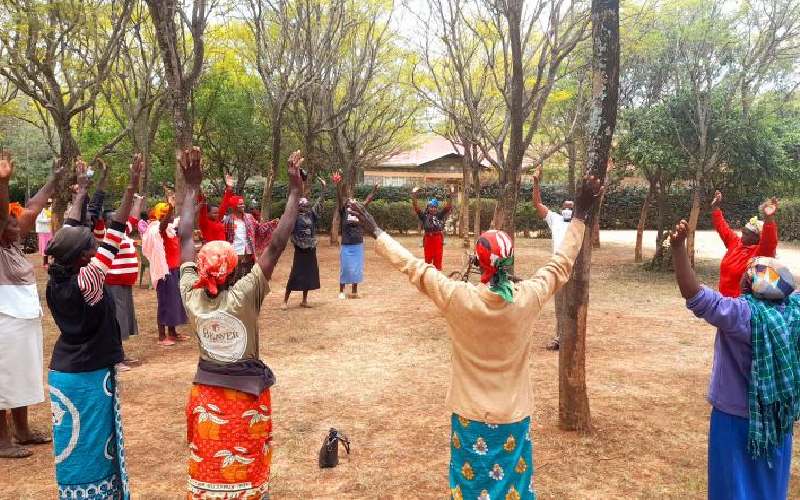×
The Standard e-Paper
Fearless, Trusted News

Some of the displaced persons undergo a physical exercise to relieve tension.[Harun Wathari,Standard]
After brutal attacks meted on her family on the night of September 6 during a bandit raid at Mirigwit village, frequent theft of livestock and uncertainty in Laikipia County, Grace Nyambura feels hopeless.